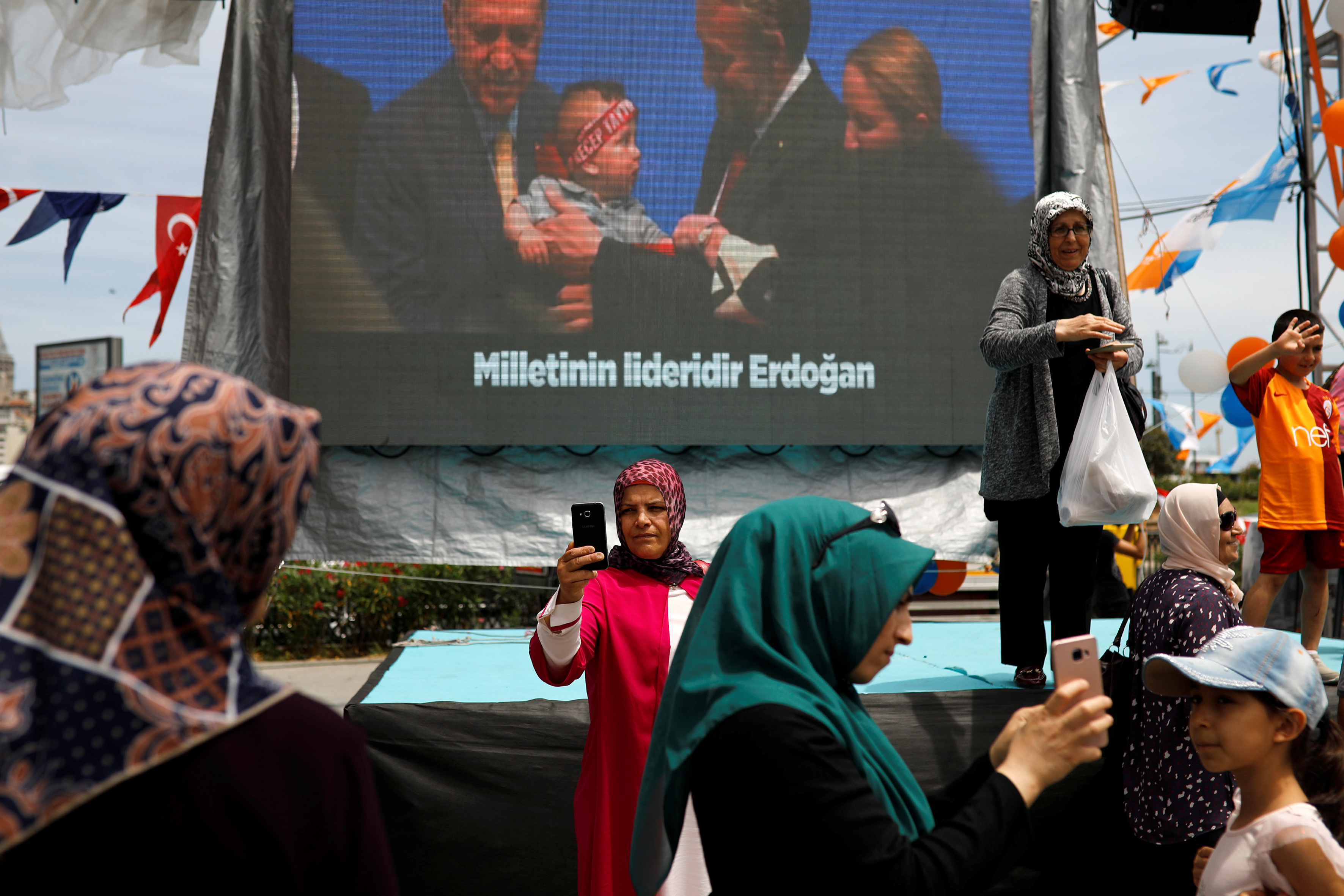Polarisation, misinformation and fear: insights into Turkish media

Television is the main news source in Turkey, followed by online news, according to a new report from the Reuters Institute for the Study of Journalism.
The report also finds the smartphone has overtaken the computer for the first time for accessing news, the rise in online news use has stalled after two years of growth, and the most used online news sites are those provided by traditional media brands, using content repackaged from print, television or news agencies.
The Turkey Supplementary Report – which is based on the 2018 Digital News Report, a global study of how 74,000 people in 37 countries access news - reveals that while some trends in Turkey are similar to those elsewhere, there are a number of differences in behaviour that could be linked to Turkey's polarised political environment.
More people in Turkey reported concern that openly expressing their political views online could get them into trouble with authorities than in any other country surveyed. Turkish respondents also reported the highest level of exposure to ‘stories that are completely made up for political or commercial reasons’.
The report, by Dr Servet Yanatma, found that closed messaging apps have taken over from Facebook for news. This may be linked to fears about government surveillance on social networks.
Key findings:
Sources of news
- More people (48%) cite television as their main news source. Online news, including social media, is the second most cited main news source (39%)
- Radio (7%) and printed media (6%) are rarely cited as main news sources
- The number of those citing online news, including social media, as their main news source has plateaued this year, after two years of growth
- The share of digital-born news outlets (websites/apps with no links to established news outlets) has not increased, remaining at 7%
- Online news, including social media, is the primary source for left-wing respondents (45%). TV is the primary source for those on the right (59%).
News devices
- The share of smartphones as the main device used to access news has risen significantly - from 28% to 43% in three years.
- The younger the respondents the more they use smartphones to access news. 53% of 18–24 year olds use the smartphone as their main device, compared to 31% of over-55s.
Turkeys top media brands
- Television channels dominate the traditional top brands. FOX TV is still the most preferred source - both in weekly usage and as a main source, followed by CNN Türk, NTV, and TRT.
- Only two newspapers (Hürriyet and Sözcü) are listed in the top ten traditional brands.
- CNN Türk, Hürriyet, Mynet, NTV, and Sözcü are the most popular online news brands.
Trust in news
- The figures for overall trust (38%) and distrust (40%) in Turkish news media are remarkably similar. This is an indicator of Turkey’s polarised society and news media.
- Distrust in news is two percentage points higher than trust this year.
- Trust is low for social media and search at 33% and 38% respectively.
- Political leaning plays a significant role in trust in news. Overall trust in news is higher on the right (51%) than the left (29%).
- Younger respondents have the lowest level of trust in news, with just 28% in the 18–24 age group, whereas it is 43% for over 55s.
- Some brands are trusted much more than others but the report also underlines how strongly trust can be influenced by pre-existing views about politics.
Misinformation
- 49% of respondents stated they have come across ‘stories that are completely made up for political or commercial reasons’. The average across all 37 countries in the Digital News Report is 26%.
- Left-wing respondents reported more exposure to completely made-up news at 59%, the figure is also very high for respondents on the centre and the right at 49% and 48% respectively.
Social media messaging
- Decline in the use of Facebook for news continued, as it fell by 18 percentage points in the past three years. The rise of closed messaging services like WhatsApp also continued, up 5 percentage points this year, making a 13 percentage point increase over the past two years.
- Turkey is at the top of all 37 countries for the proportion (65%) stating concern that openly expressing their political views online could get them into trouble with the authorities.
Read or download the full report also, watch a three minute video with main findings of the Digital News Report, 2018



